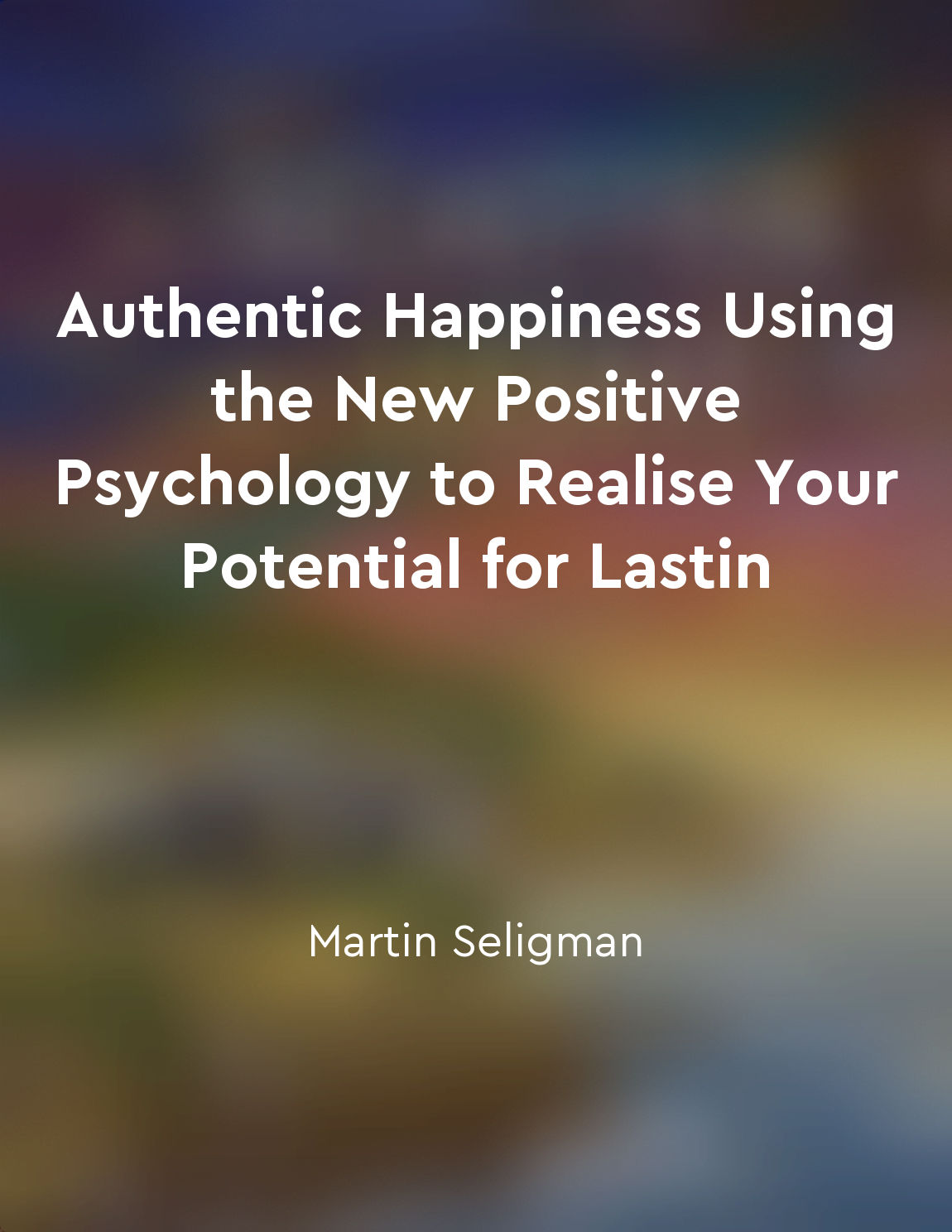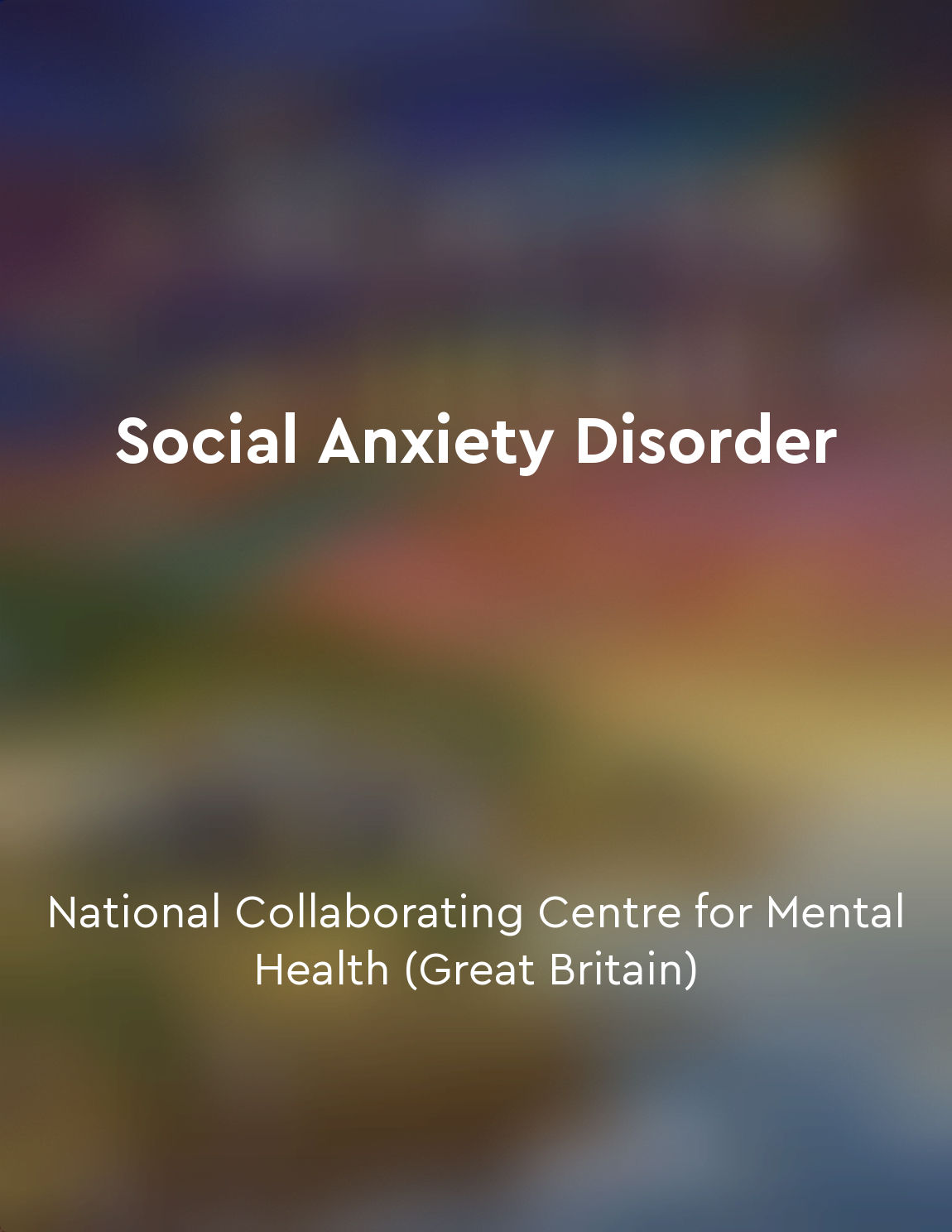Recognize and challenge negative thinking patterns from "summary" of The Resilience Factor by Karen Reivich,Andrew Shatte,Ph.D.
Negative thinking patterns can severely impact our ability to bounce back from challenges and setbacks. These patterns are often deeply ingrained in our minds, stemming from past experiences and beliefs. It is crucial to recognize these negative thoughts as they arise, as they have the power to influence our emotions and behaviors. By becoming aware of these patterns, we can begin to challenge their validity and replace them with more positive and adaptive thinking. One common negative thinking pattern is catastrophizing, where we imagine the worst possible outcome in a situation. This can lead to heightened anxiety and a sense of helplessness. By challenging these catastrophic thoughts and considering more realistic and balanced perspectives, we can reduce our emotional distress and approach challenges with a clearer mindset. Another detrimental thinking pattern is personalizing, where we blame ourselves for negative events or outcomes. This can erode our self-esteem and confidence, making it harder to recover from setbacks. By recognizing when we are engaging in personalizing and reframing the situation to consider external factors or circumstances, we can cultivate a more compassionate and understanding view of ourselves. Overgeneralization is a common negative thinking pattern where we draw sweeping conclusions based on limited or isolated incidents. This can lead to a distorted view of reality and hinder our ability to see the bigger picture. By challenging these overgeneralizations and seeking out evidence to support more balanced and nuanced perspectives, we can avoid falling into the trap of negative thinking. Mind reading is another harmful thinking pattern where we assume we know what others are thinking or feeling about us. This can lead to unnecessary worry and stress, as we cannot truly know the thoughts of others. By challenging these assumptions and practicing open communication and empathy, we can foster healthier relationships and reduce our reliance on negative mind reading. By recognizing and challenging these negative thinking patterns, we can cultivate resilience and build a more positive and adaptive mindset. It takes practice and self-awareness to break free from these ingrained patterns, but the rewards are well worth the effort. Through consistent effort and a willingness to challenge our own thoughts, we can overcome obstacles with greater ease and bounce back from setbacks with renewed strength and determination.Similar Posts
Practicing gratitude for the present moment nurtures our focus
When we take the time to acknowledge and appreciate the present moment, we are actively nurturing our ability to focus. This ac...
Embrace the power of gratitude
Gratitude is a powerful force that can transform your life in miraculous ways. When you embrace the power of gratitude, you ope...

Strive for compassionate selfdialogue
The idea of being kind and gentle with yourself is a crucial component of self-compassion. It involves recognizing your own hum...

Practicing acts of kindness can increase happiness levels
In this book, Seligman discusses how practicing acts of kindness can lead to increased levels of happiness. By engaging in acts...
Cognitive distortions can perpetuate anxiety symptoms
Cognitive distortions play a crucial role in perpetuating anxiety symptoms. When individuals engage in distorted thinking patte...
We often underestimate our own ability to adapt to changing circumstances
Our inability to predict what will make us happy in the future is due to a fundamental misunderstanding of our own adaptive cap...

Release attachment to outcomes for true abundance
The idea behind releasing attachment to outcomes for true abundance is a powerful concept that can transform your life. When we...

It is a complex mental health issue that requires proper treatment
Social anxiety disorder is a multifaceted mental health condition that necessitates appropriate intervention. Individuals grapp...
Finding peace in the present moment is key
In the midst of our chaotic thoughts and worries, finding peace in the present moment is crucial. It is easy to get caught up i...
Focus on solutions, not problems
When faced with challenges or setbacks, it is natural for most people to dwell on the problems at hand. They may spend countles...
